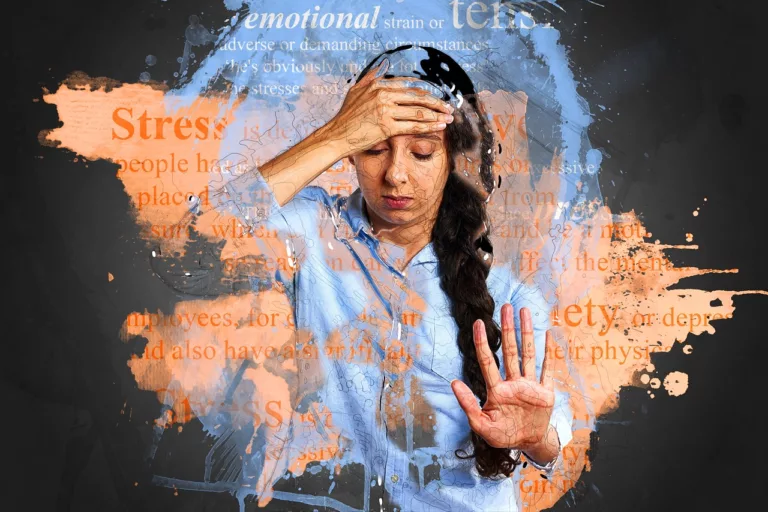Hotel Safety Guide For Women
I’m going to take you on a detailed tour of a topic that’s vital for any woman hitting the road alone or with companions: hotel safety. Now, hotel safety guide for women isn’t just about locking your door at night; it’s also about the steps you can take beforehand to ensure you’re picking a safe environment to rest your head.
It’s imperative for women to be equipped with knowledge and tools for personal safety. Traveling can open up a host of enriching experiences, but it also introduces new risks, especially when it comes to accommodations. Awareness and preparation can make all the difference between a trip filled with wonderful memories and one that’s marred by a safety incident.
In my opinion, staying safe as a solo female traveler starts well before you enter the lobby of your hotel. It’s woven into every step of travel, from planning to booking to walking through unfamiliar streets. What I aim to do here is help you with practical advice that prioritizes your safety while still allowing you to enjoy your adventures to the fullest.
Table of Contents
If you want to travel smartly and securely, you’ll need to start at the booking phase. Ensuring your peace of mind is everything, so choosing the right hotel becomes a paramount pre-trip decision. You’re going to find out about vetting your options, learning to spot security red flags, and the benefits of technology in doing all of these things.

Don’t worry too much about feeling overwhelmed; you can always adjust your tactics down the road as you become more travel-savvy. The important thing is to start thinking about these issues now, so they become second nature as you embark on your travels. Let’s move on to the specifics of assessing and choosing the right hotel to secure that peace of mind.
Hotel Safety Guide for Women: Choosing the Right Hotel
You’re going to find out about the careful steps and consideration that need to go into choosing your hotel as a savvy woman traveler. It’s not just about comfort and amenities; it’s primarily about your safety and peace of mind. I’m here to help you with that.
First, start with some sleuthing on hotel safety records and reviews, but ensure they’re from credible sources. Look out for the experiences of previous guests, especially women, who’ve shared their insights. You might notice patterns like areas of poor lighting or security matters that others have pointed out.
The location of the hotel is a major player in your safety. Make it a priority to check for a well-lit area, a safe neighborhood, and how close it is to emergency services like hospitals or police stations. A dodgy area, no matter how cheap the hotel, simply isn’t worth the risk.
Next, scrutinize the hotel amenities. Does the hotel have a 24/7 front desk? Are there security personnel or surveillance cameras present? These features can greatly increase your sense of safety, and I advise choosing a hotel that provides these basics.
In our digital age, you can also leverage technology to enhance your safety with apps and online tools that give you a realistic picture of the hotel and its surroundings. They can also offer quick communication channels should you need assistance within the hotel, so keep those handy.
Safe Booking Practices: Protecting Your Information
When you book a hotel, you’re not just reserving a room; you’re entrusting the hotel with your personal information. That’s why safe booking practices are a critical first step in ensuring your overall safety as a woman traveler. Let’s talk about how to make sure your information stays secure throughout the booking process.
First off, always use secure booking platforms. Look for websites that start with ‘https://’ and feature a locked padlock symbol near the address bar. These sites encrypt your data, making it harder for unauthorized parties to access it. Stick with reputable travel websites or the hotel’s official site.

Your personal details are precious. When you provide information like your full name, address, or payment details, consider how the hotel will protect them. Take a few minutes to read through the hotel’s privacy policy. If you can’t find one, or it doesn’t clearly explain how your information is protected, that’s a red flag. Anonymous booking options, when available, can add an extra layer of privacy.
Paying for your booking requires caution. Using a credit card often gives you more protection against fraud than a debit card. Credit card companies generally have robust systems to detect suspicious activities and allow you to dispute unauthorized charges if something goes wrong.
The transition from booking safely to arriving at your destination is critical. In my next section, I’m going to guide you through what to do when you reach the hotel, from the moment of check-in to settling into your room. You’ll find out about the precautions that can help you maintain your security and peace of mind, starting with Day One.
Check-in and Day One Strategies
Upon arrival at your hotel, maintaining safety starts right at the check-in desk. Keep your personal information private; offer just your ID and avoid sharing details about your stay aloud, where others might overhear. When receiving your room key or card, make sure it isn’t announced or visible to bystanders.
Now what is crucial is safeguarding that key. Treat it as you would any sensitive piece of information. If you lose it or misplace it, report it immediately and have the hotel issue a new one. It’s all about being pro-active.
Your first day sets the tone for your entire stay, so diligence is key. Once you’re in your room, check that locks and safes work properly. Familiarize yourself with the layout of the hotel, particularly the locations of exits and emergency stairwells, and review the escape plan often posted on the back of your door.
But it’s not just about your room, it’s also about how you interact with common areas. When you’re moving through corridors, elevators, and the lobby, stay aware of your surroundings. Opt for elevators over stairwells, especially at night, and if someone you don’t trust enters the elevator, step out and wait for the next one.
As you look forward to the upcoming days of your stay, know that your vigilance on day one is a foundation for ongoing security. Forge habits that ensure your safety as a traveler, and remember: your well-being is paramount.
Next, I’m here to help you with understanding the daily measures you can take to remain secure throughout your hotel stay. From managing your personal belongings to ensuring your online security, each action contributes to a stress-free experience. Let’s ensure your stay is as safe as it is enjoyable.
Maintaining Security Throughout Your Stay
Once you’re settled in, your focus will shift to maintaining a secure environment during the duration of your stay. You’re going to find out about daily routines that can significantly bolster your security as well as some crucial safety practices.
First on the list is keeping a low profile. Avoid sharing too much personal information with strangers or leaving valuable items out in the open. Use the hotel safe for passports, travel documents, jewelry, or any other small, valuable items.

Digital safety is increasingly important, so be cautious when using the hotel’s Wi-Fi network. Avoid accessing sensitive information or conducting transactions that require personal data unless you’re connected to a VPN.
You can always adjust your approach down the road, but setting a ‘Do Not Disturb’ sign on your door when you’re out is a great way to keep your room private. Additionally, consider coordinating with housekeeping for cleaning times when you’re present, if that makes you more comfortable.
What’s equally essential is staying vigilant in common areas. Keep your belongings in sight and within reach, especially in the hotel’s gym, lounge, or pool area. Choose something that resonates with you – safety should feel personal and intuitive, not cumbersome.
Your safety measures shouldn’t end as your stay comes to a close. In my opinion, the evening before departure is a good time to double-check your belongings and ensure nothing is left behind or out of place. This not just about making sure you have all your possessions, it’s also about confirming that nothing suspicious has been added to your luggage.
Conclusion
I hope by now you understand why a hotel safety guide for women isn’t something to gloss over, especially for women travelers. It’s about being informed, prepared, and vigilant.
You’ve learned some of the most effective strategies to keep yourself safe, from picking the right hotel to handling emergencies. Remember, your intuition can be powerful. If something doesn’t feel right, trust that feeling and act on it.
I can’t stress enough the value of continuous learning and staying up to date on travel safety. The world is constantly changing, and so are the risks involved in traveling.
Keep building your knowledge base, share your experiences with other women travelers, and don’t hesitate to join communities where you can learn from others’ insights. By doing this, you’re not just looking out for yourself—you’re part of a larger movement towards safer travel for all women.
So, next time you’re planning a stay, reference these tips inside the hotel safety guide for women. Choose something that resonates with you, maybe it’s double-checking locks or keeping emergency numbers at hand. And remember, this isn’t about fear—it’s about confidence. The confidence to travel smart and arrive back home with nothing but great memories.
Thank you and I hope you found this article interesting and informative. Feel free to leave comments or questions below. Also, click here for the next article about the psychological impact of harassment.
Additionally, click here to explore my other website to gain insights into essential investigative techniques employed by detectives and crime scene investigators in solving complex criminal investigations.
W. McCain




